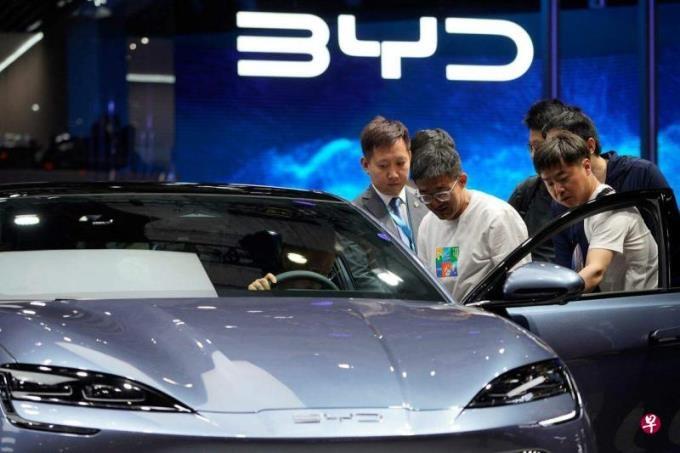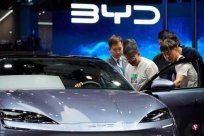
With the exit of the national subsidy policy at the end of last year last year, China's electric vehicle market has slowed down in the first three months of this year.Data show that the cumulative retail volume of electric vehicles from January to March this year was 1.313 million, an increase of 22.4%year -on -year, but the growth of 146.6%in the first quarter of last year was significantly slowed down significantly.
Scholars of interviewees believe that although the "national supplement" exit will bring a large reshuffle in the Chinese electric vehicle market industry, its core technical advantages will be obvious, and China will still maintain a global leading position in this field.However, in the context of the increasingly fierce Sino -US scientific and technological war, how to break through technology that highly rely on chips to break through technology will be a big challenge in the future.
China Passenger Vehicle Market Information Joint Meeting (Passenger Federation) It is expected that the growth of electric vehicle sales will reach a bottleneck stage earlier this year. After the new energy subsidy policy is delisted, growth will become a serious problem.
Since 2010, the Chinese government has provided consumers who purchase electric vehicles for 4,800 yuan (RMB, the same below, about S $ 928) to the national electric vehicle purchase subsidy ranging from 12,600 yuan.However, this policy ended on December 31 last year, and the vehicles that began to be licensed this year will no longer give subsidies.
According to the data of the Federation of Federation, the retail sales of electric vehicle in January this year are expected to be 360,000 units, an increase of only 1.8%year -on -year, and a decrease of 43.8%month -on -month.Although it has picked up in February and March, there is still a gap compared with the end of last year.In December last year, China's electric vehicle sales were 814,000.
The Federation of Federation believes that the price increase of electric models in the early stage and fewer orders, and leading companies such as Tesla and other leading companies have reduced prices, causing consumers' wait -and -see emotions, and sales have decreased greaterly month -on -month.
Yu Hong, a senior researcher at the East Asia Research Institute of Singapore, pointed out in an interview with Lianhe Morning Post that the end of the subsidy has made the Chinese electric vehicle industry unavoidable to enter the integration period, and car companies strive for market share through price wars.In this process, the overall number of electric vehicle brands will be reduced. Some small and medium -sized electric vehicle vendors that have small profit margins and have not reached large -scale production will gradually be eliminated or integrated.
Lei Jun, the founder of Xiaomi Group, who entered the electric vehicle industry in 2021, predicted that when the electric vehicle industry matured, the world's top five brands would account for more than 80%of the market share.
But Yu Hong believes that this does not affect the global competitiveness of Chinese electric vehicles in the world, and as some powerful car companies go to sea, the market share of Chinese electric vehicles will continue to expand in the global market share.momentum.
According to Japanese media reports, BYD, a leading Chinese electric vehicle company, has accounted for more than 70 % of the Japanese commercial electric buses, and is in a leading position.
Yu Hong pointed out that Chinese electric vehicles have core production advantages. He takes the global electric vehicle giant Tesla's super factory in Shanghai as an example. "It can be completed in the Yangtze River Delta region. "This is China's industrial chain and cluster technology advantages.
Lin Dawei, a senior researcher at the East Asia Research Institute of Singapore National University, told the United Morning Post that as the largest electric vehicle production country and the largest electric vehicle battery production country, China has seized this field of the world economy. "China is environmentally friendly, new, newThe energy technology industry has a bright future. "
Yu Hong may be expressed by the impact of Chinese electric vehicles in the future.He said that artificial intelligence -based algorithms and autonomous driving technology are essential to the development of the electric vehicle industry in the future, and they all rely on high -precision chips."If the competition between China and the United States is more fierce, the United States will further expand its scope of restrictions on export chips in China. How to support China's future electric vehicle industry's technology improvement will be a major challenge."
Lin Dawei is more optimistic about this. He believes that competition between China and the United States will not have a serious impact on the Chinese electric vehicle industry."The issue of electric vehicles and other environmental protection and climate change is the only issue between China and the United States that can cooperate and not controversial. In this sense, this is a positive field that the two major powers can achieve consistent."




